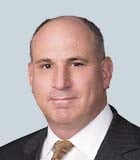Hospitals are increasingly using hospitalist programs to manage the ongoing shift to value-based care, along with operating costs and the challenges of managing, recruiting and retaining high-quality physicians. When utilized effectively, hospitalist programs can reduce lengths of stay, the cost of hospitalization and readmission rates— improving patient outcomes and hospitals’ economics.
As introduced in the New England Journal of Medicine in 1996, a hospitalist is defined as: a physician whose primary professional focus is the general medical care of hospitalized patients. Hospitalists perform several functions in hospitals:
- Hospitalists: hospital-based physicians who provide internal medicine to patients admitted to hospitals as their attending physician
- Intensivists: physicians who provide specialty care for critically ill patients in intensive care units
- House physicians: specialty physicians (OB/GYN, gastroenterology, etc.) who round within hospitals and treat patients who cannot immediately be seen by their attending physician
In addition, as hospitals are increasingly accountable for patients throughout the continuum of care following discharge, the hospitalist model is being deployed in the post-acute environment. This has led to the rise of Skilled Nursing Facility Physicians (SN Fists), primary care specialists at post-acute care facilities, who typically specialize in geriatric care.
Hospitalists drive high-quality, cost-effective patient care, which increases medical staff satisfaction, reduces insurance denials, and increases reimbursement related to quality measures while also providing care for unassigned patients. Additionally, hospitalist programs free admitting physicians from frequent rounding in the hospital, allowing more time for office-based patient visits. Hospitalist programs can also be closely aligned with emergency department physician programs.
Corporate Finance and Restructuring
M&A advisory, restructuring and insolvency, debt advisory, strategic alternatives, transaction diligence and independent financial opinions.
Healthcare Investment Banking
Healthcare expertise for middle-market M&A transactions.
Mergers and Acquisitions (M&A) Advisory
Kroll’s investment banking practice has extensive experience in M&A deal strategy and structuring, capital raising, transaction advisory services and financial sponsor coverage.
Transaction Advisory Services
Kroll’s Transaction Advisory Services platform offers corporate and financial investors with deep accounting and technical expertise, commercial knowledge, industry insight and seamless analytical services throughout the deal continuum.
Fairness and Solvency Opinions
Duff & Phelps Opinions is a global leader in Fairness Opinions and Special Committee Advisory, ranking #1 for total number of fairness opinions in the U.S., EMEA (Europe, the Middle East and Africa), Australia and Globally in 2023 according to LSEG (FKA Refinitiv).
Financial Sponsors Group
Dedicated coverage and access to M&A deal-flow for financial sponsors.
Distressed M&A and Special Situations
Kroll professionals have advised hundreds of companies, investors and other stakeholders at all stages of distressed transactions and special situations.
Private Capital Markets – Debt Advisory
Kroll has extensive experience raising capital for middle-market companies to support a wide range of transactions.


